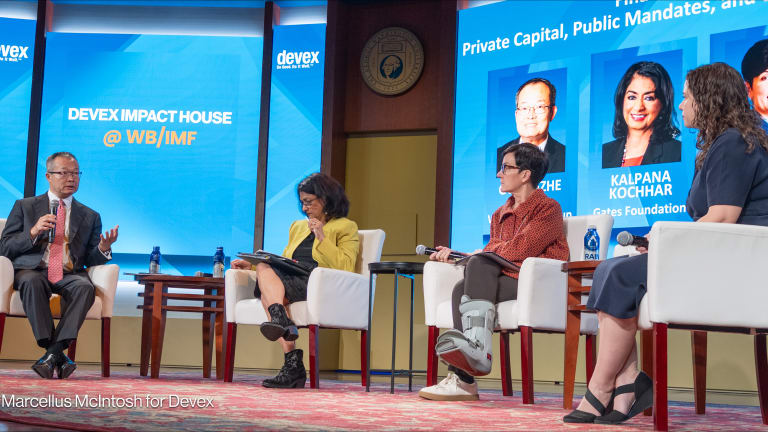When the U.S. Agency for International Development pulled out of an ambitious health electrification program in Africa, the future of thousands of rural clinics seemed uncertain. Most projects don’t recover from the sudden loss of donor funding. Yet in Tanzania, one effort not only survived — it set the stage for a private-sector partnership now poised to electrify 50,000 facilities across 10 countries.
That story, shared at Devex’s Impact House on the sidelines of the 80th United Nations General Assembly, became a touchstone for a wider debate: How private capital can step into roles once dominated by public aid, and what it takes to make those investments work. Panelists stressed that proof-of-concept funding, patient partnerships, and protection against currency volatility are all essential to shift more money into climate action in emerging markets.
USAID launched the Health Electrification and Telecommunication Alliance, or HETA, to bring power to 20,000 health facilities across Africa, according to Zola Intelligence CEO Bill Lenihan, pairing donor funding with support from Bechtel, a U.S. engineering and construction firm. When the program reached Tanzania, a local company won the contract to electrify about 1,000 clinics and turned to Zola Intelligence, a renewable energy provider, for the technology. Within a month, those clinics were running on reliable power — proof, Lenihan said, that the model could work at speed and scale.








